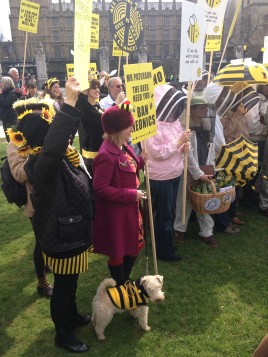This week, representatives to the European Union voted to enforce a temporary, two-year ban on pesticides, despite the opposition from the UK environmental minister, Owen Patterson, who voted against the ban.
Bee numbers have suffered significant and widespread decline in recent years. Contributing to this negative trajectory, experts have cited a number of environmental factors; from disease and chemicals to disappearing green space and habitat loss.
Have a listen to our podcast, In search of lost bees, where Stephan Wolf and Dino McMahon use radar to track bee behaviour. By doing so, they hope to find out why bee populations have, in some parts of the world, gone into such rapid decline.
Given the multitude of critical roles bees perform, it is unsurprising that a significant amount of research has already been undertaken to provide answers. Nevertheless further investigation is still necessary to advance our understanding in order to develop effective responses to preserve, and hopefully reverse, the current fortunes of the bees.
Understanding more fully the effect pesticides, called neonicotinoids, are having on bees, was central the calls for a temporary ban on these chemicals. Advocates for this two-year cession argued this is will facilitate studies to measure the effect it has on bees and will involve monitoring bee recovery levels. These calls received strong public backing, with 38 degrees and Avazz petitions receiving 285,000 and 2.6 million signatures respectively. This culminated with the ‘March of the Beekeepers’ at Parliament Square on Friday 26th before the vote. It was hosted by 38 Degrees along with Avaaz, Buglife, Environmental Justice Foundation, Friends of the Earth, Greenpeace, Pesticide Action Network UK, RSPB, and the Soil Association and was attended by a cheerful crowd, representing a broad cross section of society.
If you would like to read more about the demise of bees, have a look at Friends of the Earth’s recent report, ‘The Decline of England’s Bees’, undertaken by the University of Reading Centre for Agri-Environment Research.


Subscribe with…